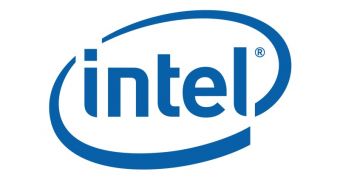Intel yesterday rolled out the new Dual-Core Intel Itanium Processor 9100 series processors, the sixth generation of Itanium chips.
The new CPUs boast a new feature called Core Level Lock-Step that "improves the data integrity and reliability of applications by eliminating undetected errors in the core". This improvement adds to the existing Socket Level Lock-Step technology to deliver greater reliability, availability and serviceability (RAS) by guaranteeing that calculation results are consistent among the cores and sockets.
Another new feature is Demand Based Switching (DBS), which supposedly reduces server power consumption during low utilization periods.
The 9100 series features clock speed of up to 1.66 GHz and 667 MHz Front Side Bus (FSB) within a 104W power envelope. A three-load bus, two processors and a chipset on the same bus, provides increased bandwidth for enterprise and high-performance computing tasks.
"The Itanium ecosystem continues to grow as customers choose industry standard platforms supported by leading system OEMs that provide them with the broadest choice of applications", said Pat Gelsinger, senior vice president and general manager, Intel's Digital Enterprise Group.
All server-maker members of the Itanium Solutions Alliance (ISA) will launch new Dual-Core Intel Itanium Processor 9100 series-based products, including Bull, Fujitsu, Fujitsu Siemens Computers, HP, Hitachi, Intel, NEC, SGI and Unisys.
The 9100 series, with its extensive virtualization partitioning features, is the premier platform for RISC and mainframe migration. Itanium offers a single platform for virtualization of diverse OS environments such zOS, legacy Unix, Linux and Windows; allowing for the consolidation of applications from old proprietary platforms.
Six Intel dual-core and a single-core Itanium 9100 series processors are shipping today, with prices ranging from $696 to $3,692 depending on order volume, features and performance. Parts supporting Core level Lock-Step will begin shipping in the first quarter of 2008.

 14 DAY TRIAL //
14 DAY TRIAL //